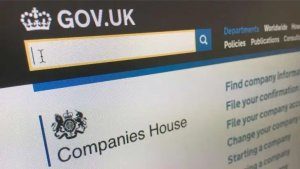- Business
- Corporate

Shorter Reads
Coronavirus: Corporate Residence – Updated HMRC Guidance
3 minute read
Published 8 April 2020
Since last writing, HMRC has responded to calls to update its guidance on corporate residence during the global coronavirus pandemic, here, and on permanent establishments here.
This guidance, which mirrors that previously set out for individuals (here) is very welcome, and greatly to HMRC’s credit. HMRC expresses its sympathy to those affected in respect of the disruption being endured.
Tax Residence of Foreign-Registered Companies
In summary, HMRC’s general view is that:
“We do not consider that a company will necessarily become resident in the UK because a few board meetings are held here, or because some decisions are taken in the UK over a short period of time. HMRC guidance makes it clear that we will take a holistic view of the facts and circumstances of each case.”
This is helpful, though generic. HMRC points to existing guidance and states that each case will turn on its own facts.
Fortunately, the UK has one of the most comprehensive sets of double tax treaties of any jurisdiction. Those treaties routinely contain “tie-breaker” provisions that can determine residence if, under their own domestic laws, a person or company would be resident in both jurisdictions. For companies, that test determines the “place of effective management” of the business *(“POEM”). The OECD issued its own reassuring guidance on those provisions here.
HMRC’s updated guidance seems to accept the OECD’s view that:
“It is unlikely that the COVID-19 situation will create any changes to an entity’s residence status under a tax treaty. A temporary change in location of the chief executive officers and other senior executives is an extraordinary and temporary situation due to the COVID-19 crisis and such change of location should not trigger a change in residency, especially once the tie breaker rule contained in tax treaties is applied.”
HMRC’s case-by-case approach is less clear than that taken by the Irish Revenue, which simply states:
“Where an individual is present in the State and that presence is shown to result from travel restrictions related to COVID–19, Revenue will be prepared to disregard such presence in the State for corporation tax purposes for a company in relation to which the individual is an employee, director, service provider or agent.”
Similarly, the Australian Tax Office states in its Coronavirus Q&A:
“If the only reason for holding board meetings in Australia or directors attending board meetings from Australia is because of impacts of COVID-19, then we will not apply compliance resources to determine if your central management and control is in Australia.”
Nevertheless, assuming that HMRC is true to its word about its sympathy for individuals and businesses affected by the coronavirus lockdowns, then the result ought in almost every case to be the same. One would expect that the only exceptions to such an outcome would be where HMRC has cause to attack the arrangements for reasons unrelated to the coronavirus pandemic.
Permanent Establishment
HMRC summarises its general position as follows:
“We do not consider that a non-resident company will automatically have a taxable presence by way of permanent establishment after a short period of time. Similarly, whilst the habitual conclusion of contracts in the UK would also create a taxable presence in the UK, it is a matter of fact and degree as to whether that habitual condition is met. Furthermore, the existence of a UK PE does not in itself mean that a significant element of the profits of the non-resident company would be taxable in the UK.”
HMRC’s updated guidance on Permanent Establishments seems more heavily reliant on pre-existing advice and practice than its approach to company residence. A few headline points arise:
- HMRC accepts that Permanent Establishments are not brought about “after a short period of time”: the length of time in question is open to some doubt, but in the context of the global coronavirus-related lockdowns, it would seem fair to suppose that the duration of the UK’s lockdown restrictions, at least, would be such a “short period”.
- To avoid the question of whether contracts are “habitually” concluded in the UK, it should be avoided wherever possible. Good records should be kept of the place all contracts are concluded, and they should be stored outside the UK – preferably in the jurisdiction in which the company is registered (e.g. at its registered office).
As the OECD noted in its recent guidance, pointing to the degree of permanence required to create a Permanent Establishment:
“it is unlikely that the COVID-19 situation will create any changes to a PE determination. The exceptional and temporary change of the location where employees exercise their employment because of the COVID-19 crisis, such as working from home, should not create new PEs for the employer. Similarly, the temporary conclusion of contracts in the home of employees or agents because of the COVID-19 crisis should not create PEs for the businesses.”
The OECD guidance is clearer than HMRC’s about the low risk of bringing about a “dependant agent” Permanent Establishment:
“An employee’s or agent’s activity in a State is unlikely to be regarded as habitual if he or she is only working at home in that State for a short period because of force majeure and/or government directives extraordinarily impacting his or her normal routine.”
This seems to us to be the correct analysis, and it is one we would expect HMRC to share in relevant cases.
General Comments
The tax challenges caused by the global coronavirus pandemic are being faced by every central revenue authority. Some, like Ireland’s and Australia’s, have responded by clear statements of principle on which affected individuals and businesses will expect to rely. HMRC has taken a rather different approach, emphasising that decisions will depend on case-by-case analysis, whilst making general (but non-binding) statements indicating that it will take a sensible view. This is perhaps a consequence of the poor standard of discussions about tax in the UK and the pressure that HMRC faces from its political masters and the press: potential for abuse would abound if HMRC nailed its colours to the mast. Nevertheless, one trusts that HMRC will be true to its commitments and decide cases on a rational and just basis.
Meanwhile, affected companies and directors – especially those stuck in the UK – would be well-advised to take advice on this new guidance and its implications for their businesses. Two points will arise in every case:
- Exemplary records must be kept throughout the lockdown period to satisfy HMRC if the need arises in future; and
- Once the lockdown (in the UK, at least) comes to an end, then individuals and businesses should expect that HMRC will dis-apply its coronavirus guidance and revert to the status quo ante.
https://www.gov.uk/hmrc-internal-manuals/international-manual/intm120185
Shorter Reads
Coronavirus: Corporate Residence – Updated HMRC Guidance
Published 8 April 2020
Since last writing, HMRC has responded to calls to update its guidance on corporate residence during the global coronavirus pandemic, here, and on permanent establishments here.
This guidance, which mirrors that previously set out for individuals (here) is very welcome, and greatly to HMRC’s credit. HMRC expresses its sympathy to those affected in respect of the disruption being endured.
Tax Residence of Foreign-Registered Companies
In summary, HMRC’s general view is that:
“We do not consider that a company will necessarily become resident in the UK because a few board meetings are held here, or because some decisions are taken in the UK over a short period of time. HMRC guidance makes it clear that we will take a holistic view of the facts and circumstances of each case.”
This is helpful, though generic. HMRC points to existing guidance and states that each case will turn on its own facts.
Fortunately, the UK has one of the most comprehensive sets of double tax treaties of any jurisdiction. Those treaties routinely contain “tie-breaker” provisions that can determine residence if, under their own domestic laws, a person or company would be resident in both jurisdictions. For companies, that test determines the “place of effective management” of the business *(“POEM”). The OECD issued its own reassuring guidance on those provisions here.
HMRC’s updated guidance seems to accept the OECD’s view that:
“It is unlikely that the COVID-19 situation will create any changes to an entity’s residence status under a tax treaty. A temporary change in location of the chief executive officers and other senior executives is an extraordinary and temporary situation due to the COVID-19 crisis and such change of location should not trigger a change in residency, especially once the tie breaker rule contained in tax treaties is applied.”
HMRC’s case-by-case approach is less clear than that taken by the Irish Revenue, which simply states:
“Where an individual is present in the State and that presence is shown to result from travel restrictions related to COVID–19, Revenue will be prepared to disregard such presence in the State for corporation tax purposes for a company in relation to which the individual is an employee, director, service provider or agent.”
Similarly, the Australian Tax Office states in its Coronavirus Q&A:
“If the only reason for holding board meetings in Australia or directors attending board meetings from Australia is because of impacts of COVID-19, then we will not apply compliance resources to determine if your central management and control is in Australia.”
Nevertheless, assuming that HMRC is true to its word about its sympathy for individuals and businesses affected by the coronavirus lockdowns, then the result ought in almost every case to be the same. One would expect that the only exceptions to such an outcome would be where HMRC has cause to attack the arrangements for reasons unrelated to the coronavirus pandemic.
Permanent Establishment
HMRC summarises its general position as follows:
“We do not consider that a non-resident company will automatically have a taxable presence by way of permanent establishment after a short period of time. Similarly, whilst the habitual conclusion of contracts in the UK would also create a taxable presence in the UK, it is a matter of fact and degree as to whether that habitual condition is met. Furthermore, the existence of a UK PE does not in itself mean that a significant element of the profits of the non-resident company would be taxable in the UK.”
HMRC’s updated guidance on Permanent Establishments seems more heavily reliant on pre-existing advice and practice than its approach to company residence. A few headline points arise:
- HMRC accepts that Permanent Establishments are not brought about “after a short period of time”: the length of time in question is open to some doubt, but in the context of the global coronavirus-related lockdowns, it would seem fair to suppose that the duration of the UK’s lockdown restrictions, at least, would be such a “short period”.
- To avoid the question of whether contracts are “habitually” concluded in the UK, it should be avoided wherever possible. Good records should be kept of the place all contracts are concluded, and they should be stored outside the UK – preferably in the jurisdiction in which the company is registered (e.g. at its registered office).
As the OECD noted in its recent guidance, pointing to the degree of permanence required to create a Permanent Establishment:
“it is unlikely that the COVID-19 situation will create any changes to a PE determination. The exceptional and temporary change of the location where employees exercise their employment because of the COVID-19 crisis, such as working from home, should not create new PEs for the employer. Similarly, the temporary conclusion of contracts in the home of employees or agents because of the COVID-19 crisis should not create PEs for the businesses.”
The OECD guidance is clearer than HMRC’s about the low risk of bringing about a “dependant agent” Permanent Establishment:
“An employee’s or agent’s activity in a State is unlikely to be regarded as habitual if he or she is only working at home in that State for a short period because of force majeure and/or government directives extraordinarily impacting his or her normal routine.”
This seems to us to be the correct analysis, and it is one we would expect HMRC to share in relevant cases.
General Comments
The tax challenges caused by the global coronavirus pandemic are being faced by every central revenue authority. Some, like Ireland’s and Australia’s, have responded by clear statements of principle on which affected individuals and businesses will expect to rely. HMRC has taken a rather different approach, emphasising that decisions will depend on case-by-case analysis, whilst making general (but non-binding) statements indicating that it will take a sensible view. This is perhaps a consequence of the poor standard of discussions about tax in the UK and the pressure that HMRC faces from its political masters and the press: potential for abuse would abound if HMRC nailed its colours to the mast. Nevertheless, one trusts that HMRC will be true to its commitments and decide cases on a rational and just basis.
Meanwhile, affected companies and directors – especially those stuck in the UK – would be well-advised to take advice on this new guidance and its implications for their businesses. Two points will arise in every case:
- Exemplary records must be kept throughout the lockdown period to satisfy HMRC if the need arises in future; and
- Once the lockdown (in the UK, at least) comes to an end, then individuals and businesses should expect that HMRC will dis-apply its coronavirus guidance and revert to the status quo ante.
https://www.gov.uk/hmrc-internal-manuals/international-manual/intm120185
Need some more information? Make an enquiry below.
Subscribe
Please add your details and your areas of interest below
Article contributor
James
AustenPartner
Specialising in UK trusts, tax & estate planning, Private wealth, Tax disputes & investigations and Trusts & Inheritance disputes
Enjoy reading our articles? why not subscribe to notifications so you’ll never miss one?
Subscribe to our articlesMessage us on WhatsApp (calling not available)
Please note that Collyer Bristow provides this service during office hours for general information and enquiries only and that no legal or other professional advice will be provided over the WhatsApp platform. Please also note that if you choose to use this platform your personal data is likely to be processed outside the UK and EEA, including in the US. Appropriate legal or other professional opinion should be taken before taking or omitting to take any action in respect of any specific problem. Collyer Bristow LLP accepts no liability for any loss or damage which may arise from reliance on information provided. All information will be deleted immediately upon completion of a conversation.
Close




















































































